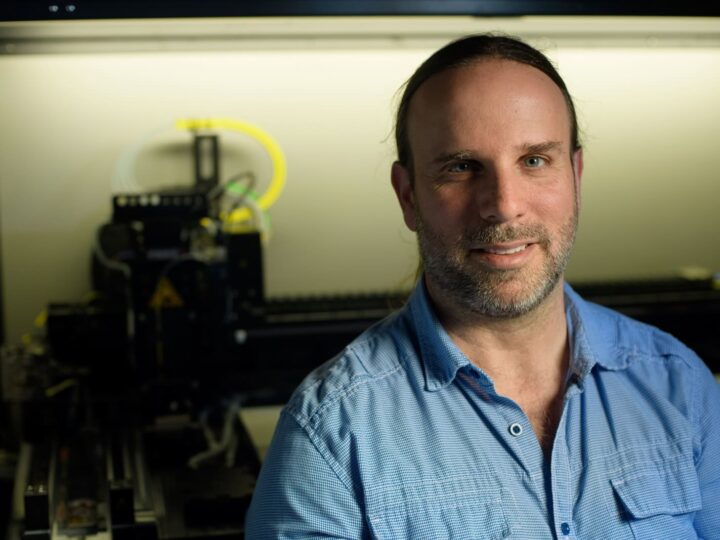In a newly published study in Scientific Reports, a team from Hebrew University of Jerusalem’s Institute for Drug Research reports its discovery of 27 new molecules that activate a protein called PPAR-delta, which has the potential to increase physical endurance and trim waistlines by getting muscle cells to burn more fat.
These molecules therefore hold promise for the treatment of fatty liver disease and obesity, among other ailments.
A new, award-winning algorithm developed in the lab of Prof. Amiram Goldblum sifted through a database of 1.56 million molecules and picked out 27 with strong therapeutic potential, as determined by biologists at the Novartis Genomic Institute in San Diego.
Integra Holdings, Hebrew University’s biotech company, determined that 21 of the 27 molecules have the potential to reach pharmaceutical success, especially as a possible cure for fatty liver disease (also known as non-alcoholic steato-hepatitis), the leading cause of liver cancer in the Western world. Further evaluations are underway.
Israel’s Heller Institute of Medical Research is now testing PPAR-delta’s physical endurance properties on mice.
Goldblum is cautiously optimistic about his team’s findings and predicts that in a few years several of these molecules could be in the pipeline for clinical studies on humans. They may also be helpful for wound healing and prevention of kidney toxicity in diabetics.
“With such a large group of highly active molecules, there is a high probability to find treatments for several common diseases. However, we should wait till all the experiments are done before we get our hopes up too high,” Goldblum said.
Fighting for Israel's truth
We cover what makes life in Israel so special — it's people. A non-profit organization, ISRAEL21c's team of journalists are committed to telling stories that humanize Israelis and show their positive impact on our world. You can bring these stories to life by making a donation of $6/month.









